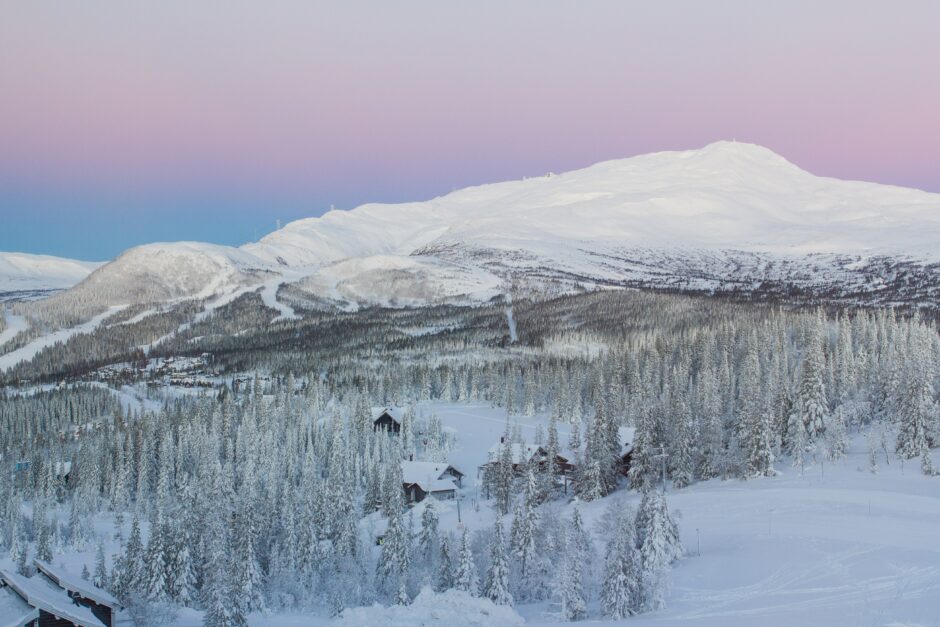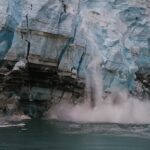LKAB – a state owned Swedish mining company – recently announced the discovery of rare earths in the north of Sweden. The deposit contains over a million tonnes of earth oxides which are a core material in the manufacturing of electronic products. With the found amount, the European Union (EU) could become self-sufficient and independent from Russia and China, at the same time strengthening the EU’s industrial value chains. According to LKAB this exploration is a critical asset in continuing the European green transition. Especially given that by 2030 the demand for materials for electrification is expected to increase fivefold.
When reading news articles on this development, the discourse seems uncritically positive. One could even say the discovery is illustrated as an utopia with the EU leading the green transition. However, should the attention be only positive? By taking a more holistic view this article intends to explore the actual meaning of this apparently ‘groundbreaking’ discovery.
In the 1900s, LKAB founded the iron ore mine in Kiruna. Currently, the project meets 80% of the EU’s supply needs. Kiruna is a city inhabited mostly by the Sami people who are already severely affected by global warming. As an indigenous community, the Sami are located in Northern Scandinavia and territories that span into Russia. When looking at the numbers, between five and ten percent of the community still follows the traditional ways of living. This group, especially, has shown concern as to how the exploitation of rare earths might affect the socio-ecological balance, preserved for several generations. The traditional reindeer herding, for instance, is already threatened by infrastructural projects such as railroad constructions or the mining business.
Reimagining infrastructure and modernity
In the book Movement: how to take back our streets and transform our lives Thalia Verkade and Marco te Brömmelstroet question the taken for granted development of infrastructure. In the common economic discourse efficiency of traffic has become equal to improved living standards and economic growth. The modern design of public spaces and what is considered the norm is what the authors try to challenge. One of the leading questions asked is: “[…] why people increasingly behave like mechanical moving parts in a traffic system instead of living, thinking human beings?” One might ask how the ideas of this book relate to the above mentioned project. When looking at the ecological destruction of Sami territories and the construction of modern infrastructure instead, we should perhaps start reflecting on how we imagine modernity. The so-called aim for a green transition would probably profit more from questioning first our belief system surrounding economic growth.
Indigenous communities are regularly portrayed as backwards and opposite to economic growth. That is why, their culture and traditions tend to be neglected when starting new extractive projects in their territories or close by. Yet, it is the philosophies of those communities that might teach us how to understand as to how to modernise in accordance with ecological principles. What is often forgotten is that endangering the livelihood of smaller communities might lead to a loss of deeply rooted and valuable ecological knowledge. Sami thinking is linked with preserving biodiversity. This happens in diverse forms. One way is through specific methods surrounding cod fishing in Norway. The maintenance of balance is important to protect the spawning site. That is why, the Sami allow the Cod populations to repopulate by using nets that do not capture large fish or by avoiding spawning sites for a certain amount of time. Salmon populations are preserved in a similar way. The Sami use fewer seine nets and try to capture pike instead of salmon. At the same time, fishermen without the same traditional knowledge have usually led to the abandonment of the site because of overfishing. With that in mind, what is considered backwards is actually a complex system to preserve the socio-ecological balance.

The European quest for a green transition
The discussed European green transition is planned to be implemented in the form of a European Green Deal. This commitment is a project that strives to make Europe the first climate-neutral continent. The European Commission has adopted proposals that should reduce the net greenhouse gas emissions by at least 55% by 2030. Among the different sectors such as clean energy systems or sustainable transport that are addressed in the proposal, working with nature to protect the planet and earth is also considered of relevance to restore the damaged ecology. The official website dedicated to the European Green Deal states that: “The Commission proposes strict new criteria to avoid unsustainable forest harvesting and to protect areas of high-biodiversity value.” Another new proposal adopted by the Commission on 23 February 2022 is the Directive on corporate sustainability due diligence. This mandate aims to protect human rights and the ecology from unsustainable corporate behaviour. Businesses shall be held responsible for their value chains inside and outside Europe. The Directive on corporate sustainability due diligence is still awaiting parliamentary decision.
Given those two important sustainability deals and the apparent willingness of the EU to adjust their policies to global warming, it is surprising that there is so little attention towards the consequences of the mining of rare earths in the north of Sweden. The Green Deal with its focus on working with nature is not replicated with the reality the Sami are currently facing. It seems that the economic growth discourse still guides the decisions as to how to adjust profitable business practices to sustainability. What if, instead we would start relying more on traditional ecological knowledge. As the effects of global warming are showing, economic growth based on profits does not go hand in hand with sustainability. The destruction of Sami territories for the sake of rare earths has shown the shortcomings of a rather exclusive European Green Deal.






